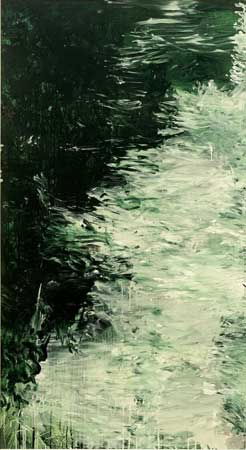Links
- Spurious
- This Space
- Long Sunday
- The Sharp Side
- Carceraglio
- One Million Footnotes
- Sit Down Man, You're a Bloody Tragedy
- Infinte Thought
- K-Punk
- Charlotte Street
- Waggish
- The Pinocchio Theory
- Pas au-dela
- Jenny Diski
- Eclipse
- Center for Book Culture
- round, unlike the circle
- stutter
- Dead Flag Blues
- Literalism
- Senses of Cinema
- Cahiers du Doute
- Electronic Intifada
- Electronic Iraq
- Fuck Amazon
- Fuck Amazon
Archives
- January 2004
- February 2004
- March 2004
- April 2004
- May 2004
- June 2004
- July 2004
- August 2004
- September 2004
- October 2004
- November 2004
- December 2004
- January 2005
- February 2005
- March 2005
- April 2005
- May 2005
- June 2005
- July 2005
- August 2005
- September 2005
- October 2005
- November 2005
- December 2005
- January 2006
- February 2006
- March 2006
- April 2006
- May 2006
- June 2006
- July 2006
- August 2006
- September 2006
- October 2006
- November 2006
- December 2006
- January 2007
- February 2007
- March 2007
- April 2007
- May 2007
- June 2007
- July 2007
- August 2007
- September 2007
- October 2007
- November 2007
- December 2007
- January 2008
- February 2008
- March 2008
- April 2008
- May 2008
- June 2008
- July 2008
- August 2008
- September 2008
- October 2008
- November 2008
- December 2008
- January 2009
- February 2009
- March 2009
- April 2009
- May 2009
- June 2009
- August 2009
- November 2009
- December 2009
- January 2010
- May 2010
- October 2010
- September 2011
- November 2011
- January 2013
His near stammering. With disconcerting promptness one word hid behind another. -- Maurice Blanchot, Le Dernier Homme Contact me: red3ad (at) yahoo (dot) com
16.6.08
15.6.08

from an interview with Cy Twombly:
I work in waves, because I'm impatient. Because of a certain physicality, of lack of breath from standing. It has to be done and I do take liberties I wouldn't have taken before....
on The Bacchus paintings:
These were all done in a couple of months. It was just very physical; it's a process. I tried to do one since then, but it didn't work. It was the sensation of the moment; you can't warm it over, unless you want mannerism. When it does come, it's natural. I don't force it.
I'm not a professional painter, since I don't go to the studio and work nine to five like a lot of artists. When something hits me, or I see a painting, or when I see something in nature, it gives me a thing and I go for it. But I don't care if I don't go for three or four months. You know, when it comes it comes.
above: Untitled VII from Bacchus Series
5.6.08
a constellation, not a system
The “true” -- if I may use what I am generally told is an outdated, if not outright suspect word -- seems to reside in the margins. In matters of presentation, style, etc. -- distrust of all showiness.
The work, unfathomable before its encounter, recedes once the book is closed. The “work” then, in terms of my recollection or commentary, is that of remnants.
*
“The really real thing that I have absolute faith in is the stars” says Moonsook, a character in Hong Sangsoo’s Woman on the Beach. When we look at the stars, we may notice very faint ones out of the corner of our eye; if we turn our gaze upon them, they disappear from view. The trick is holding them in the periphery.
And then there's the relativism of direct sight -- look at the blank space between two familiar stars through a pair of binoculars and the blackness opens up into a field of more and more stars. And nothing destroys our perception of a constellation more readily than a clear, moonless night in the country. Based on a few clear points, what we think of as a constellation is really more of a suggestion; something like a gesture, open to interpretation.
The work, unfathomable before its encounter, recedes once the book is closed. The “work” then, in terms of my recollection or commentary, is that of remnants.
*
“The really real thing that I have absolute faith in is the stars” says Moonsook, a character in Hong Sangsoo’s Woman on the Beach. When we look at the stars, we may notice very faint ones out of the corner of our eye; if we turn our gaze upon them, they disappear from view. The trick is holding them in the periphery.
And then there's the relativism of direct sight -- look at the blank space between two familiar stars through a pair of binoculars and the blackness opens up into a field of more and more stars. And nothing destroys our perception of a constellation more readily than a clear, moonless night in the country. Based on a few clear points, what we think of as a constellation is really more of a suggestion; something like a gesture, open to interpretation.



